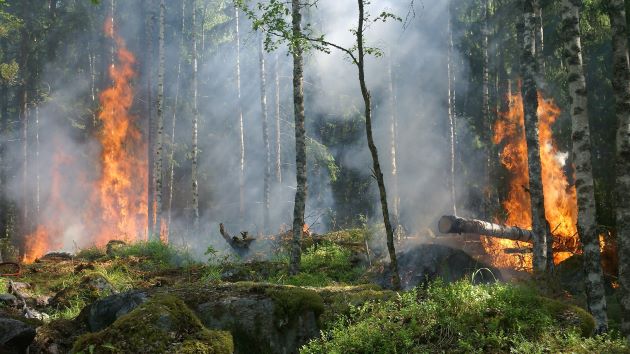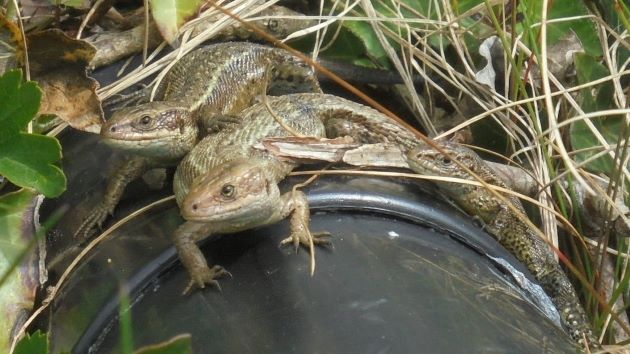3 October 2022 | Devon, UK [David Wright]
Twelve months ago, delegates at the 26th United Nations Climate Change Conference (COP26) celebrated new commitments to lower global greenhouse gases and build climate resilience. An early success evaluation of COP26 however reported that while the event saw the planet take major steps towards addressing the crisis, it had stumbled when attempting the giant leap needed to limit global warming to 1.5C above pre-industrial levels (1).
In July, 40 environment ministers meeting in Germany to prepare the groundwork for COP27 have already urged the world’s major emitters to make deeper and faster cuts to their greenhouse emissions and accelerate their green transitions with social justice at the core. (2).
COP27, to be held in Sharm El Sheikh in Egypt from 6 -18 November, marks the 30th anniversary of the adoption of the United Nations Framework Convention on Climate Change. Conference host, President Abdel Fattah El-Sisi, has already written that, ‘the world has come a long way in the fight against climate change and its negative impacts on our planet; we are now able to better understand the science… better assess its impacts, and better develop tools to address its causes and consequences’ (3). Yet, since COP26 in Glasgow, Europe has seen record-breaking heat waves and unprecedented fires bearing ‘the fingerprints of human-induced climate change caused by burning fossil fuels’ and predicted to become our ‘average summer’ by 2035 (4). International scientists have warned that this summer’s record-shattering temperatures were higher than our climate models predicted – suggesting future consequences could be even worse than previously thought.

Elsewhere our planet has seen severe famines in Yemen, and Africa (ten of its countries already identified as the most vulnerable to climatic impact), overwhelming heat and droughts in India and China, extreme flooding in Pakistan (33 million affected by a third of the country underwater) and Australia, and extensive wildfires across the Americas, both North and South. The ongoing COVID19 pandemic and the war in Ukraine have also clearly derailed many of the COP26 commitments, with countless governments now actively pursuing a return to fossil fuels to compensate for withheld Russian gas.
In the run-up to COP26, the chairman’s mantra, ‘Cash, coal, cars and trees to keep the world to 1.5C’, was used to highlight four priority areas, but recent analysis shows (5) that:
- Despite rich countries promising at least $100bn a year to help developing countries with climate impact, the effects of the European war on energy, food prices and inflation have already resulted in a shortfall. Twenty-four African leaders, meeting in Cairo ahead of COP27, have already demanded that wealthier countries uphold their pledges, placing climate finance firmly at the top of the November agenda (6).
- The commitment to phase out coal has stalled as leaders look to reopen old mines and ramp up production, and both China and India insist on changing the term to ‘phase-down’.
- While sales for electric cars have doubled, the market is now more uncertain as war disrupts key supply chains, and alternative but environmentally damaging sources for components and batteries are sought. Green campaigners would prefer people to focus on public rather than personal transport.
- One of the first ‘big wins’ in Glasgow was the deal to halt global deforestation, signed by the US, China, and Brazil among others. Yet, after President Biden confidently pledged to double US climate finance to $11.4 billion, US Congress only agreed $1 billion. Brazil’s tree loss in the Amazon is already at record levels this year, and a follow-up forestry biodiversity conference in China is currently on hold due to COVID-19 resurgence.

Current UN reports are warning that with the physical and socioeconomic impacts of climate change becoming increasingly devastating, ‘the world is heading in the wrong direction’. has written, ‘there is nothing natural about the new scale of these disasters – they are the price of humanity’s fossil fuel addiction’ (7). After the initial optimism of COP26, and in a more dangerous and divided world than before, it appears COP27 may be even more critical.
New Testament scholar Tom Wright suggests that the deep and powerfully symbolic language found in Revelation 16 with its ‘bowls of wrath’ and ‘four plagues’ describes how God allows the natural elements themselves (earth, sea, rivers, sun) to pass judgement on those who have abused their position as His image-bearer within creation instead of looking after His created world and caring for each other (8).
The American folk singer Peter Seeger powerfully challenges us to make a personal and collective response.
‘If it can’t be reduced, reused, repaired, rebuilt, refurbished, refinished, resold, recycled or composted, then it should be restricted, redesigned or removed from production’. (9)
Agreed?
(1) Was COP26 a success? The University of Edinburgh, September 2022.
(2) Governments meet ahead of COP27 to pave the way for progress in Sharm el-Sheikh, Directorate-General for Climate Action, European Commission, July 2022.
(3) The UN Climate Change Conference (COP27) website.
(4) Record-breaking heat wave in Europe will be the norm by 2035, analysis shows, CNN, August 2022.
(5) ‘Cash, coal, cars and trees’: what progress has been made since Cop26? The Guardian, May 2022.
(6) African nations push for more climate finance ahead of COP27, The Middle East Monitor, September 2022.
(7) United In Science 2022: A multi-organization high-level compilation of the most recent science related to climate change, impacts and responses, World Meteorological Organization, 2022.
(8) Revelation for Everyone, Tom Wright, SPCK Publishing, 2014.
(9) If It Can’t Be Reduced, Peter Seeger, At 89, Appleseed, 2008.



